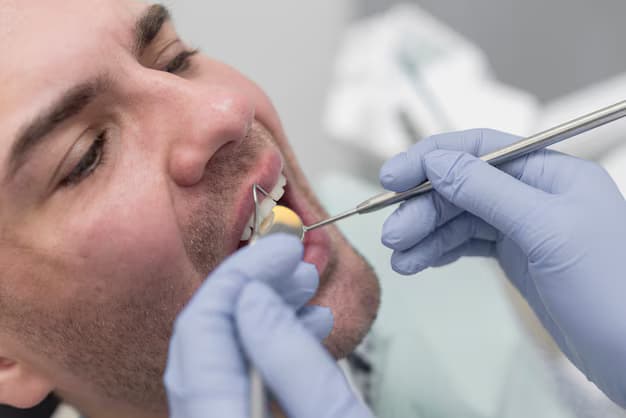Key Takeaways
- If your gums are red, swollen, or bleed, it could be gum disease. Catching it early can stop bigger problems like loose teeth or bone loss.
- You need to see a dentist regularly. Cleanings, deep cleaning below the gums, and other treatments can prevent gum disease from getting worse.
- Take care of your gums at home too. Brush gently with a soft brush, floss every day, rinse if needed, and eat foods with lots of vitamins.
- It is easier to prevent gum problems than to fix them later. Regular checkups help keep your teeth and gums healthy.
You notice your gums bleed a little when you brush. Or maybe they look red and puffy, and you think, “Eh, it’ll go away.” Well, sometimes it doesn’t. Those are early signs of gum disease, and if left unchecked, they can lead to bigger problems, loose teeth, bone loss, and even affect your overall health.
Gum disease is inflammation caused by plaque and bacteria along the gum line. At Beverly Hills Dental, we help patients catch it early, treat it effectively, and prevent it from coming back using a mix of lifestyle guidance, professional cleanings, and modern therapies.
What Gum Disease Really Is
Plaque is that sticky film you brush off every day. When it lingers, bacteria multiply, and your gums get irritated. That’s gum disease, simple in theory, but sneaky in practice. Early stages might just be a little bleeding or tenderness. Later, it can lead to pockets, bone loss, and tooth mobility.
We had a patient who thought he had “sensitive gums” for months. Turns out he had gingivitis, the early stage of gum disease. After a couple of cleanings and some guidance on flossing, he said, “I can’t believe I ignored this for so long.” That’s the thing, catching it early makes everything easier.
Signs You Shouldn’t Ignore
Gum disease doesn’t always hurt. Watch out for:
- Red, swollen, or tender gums
- Bleeding during brushing or flossing
- Persistent bad breath
- Gums pulling away from teeth
- Loose teeth (later stages)
Even small changes are worth mentioning. Seriously, don’t wait until it hurts.
Lifestyle and Diet Matter
Your gums respond to what you eat, drink, and even how stressed you are. Sugary snacks, soda, and even frequent wine can feed bacteria. Smoking makes it worse.
We’ve had patients say, “But I brush all the time!” And that’s great, but diet, stress, and hydration all play a role. We help Beverly Hills patients make small tweaks that really add up, like swapping soda for sparkling water, snacking on veggies instead of chips, and remembering to drink water throughout the day.
Professional Care
Regular dental visits are non-negotiable. At Beverly Hills Dental, we recommend:
- Checkups every 6 months (or more often if needed)
- Scaling and root planing to remove tartar and smooth roots
- Modern therapies like laser treatments or antimicrobial rinses, when appropriate
One patient had moderate gum disease. After two sessions of scaling and a gentle laser treatment, her gums healed nicely. She said, “I feel my teeth are secure again, and my gums don’t hurt.” Real results, real relief.
Home Care Tips
Professional care is essential, but home habits matter too:
- Brush gently with a soft brush
- Floss at least once a day
- Use an antimicrobial mouth rinse if recommended
- Eat foods rich in vitamin C and D
- Stay hydrated
Little things like this can prevent gum disease from coming back, and they make a huge difference in long-term gum health.
Why Early Detection Matters
Gum disease can be silent. Many people only notice it when it’s advanced. Regular checkups let us spot changes before they get serious. We check gum pockets, measure inflammation, and track bone health.
One of our patients joked, “I thought checkups were just for cavities. Turns out, my gums are VIPs too.” And she’s right. Healthy gums are the foundation of a healthy smile.
Final Thoughts
Gum disease is common, but you can prevent and treat it. Catch it early, change your habits, and keep up with regular cleanings. At Beverly Hills Dental, we help you spot the first signs and keep your gums healthy for the long term.





